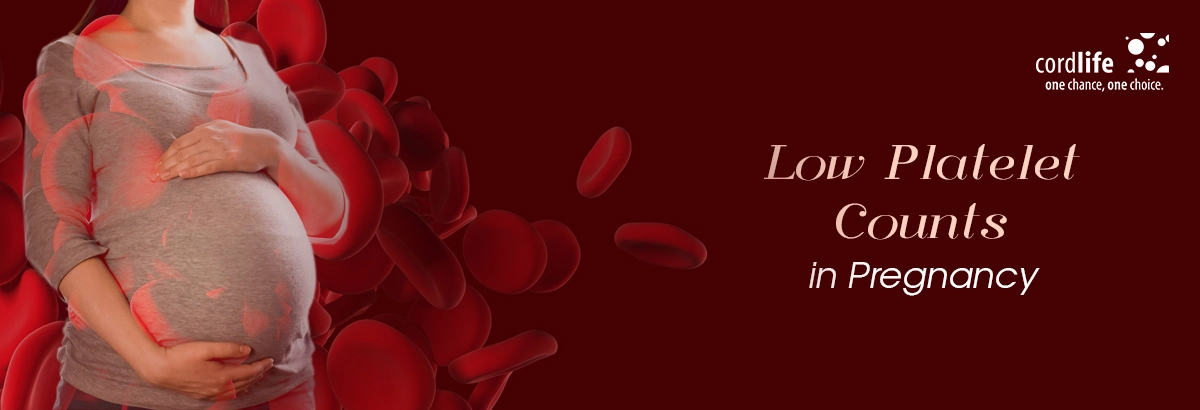Table of Contents
Platelets are cells in your blood that help your blood clot. A high platelet count may put your body at risk of strokes. However, a low platelet count may be a sign of infection in your body. 150,000 – 450,000 platelet is usually a normal platelet count range. However, thrombocytopenia or low platelet count is when the count is less than 150,000. There is a normal drop in pregnancy platelet counts.
Reasons Behind Low Platelet Counts During Pregnancy
Going deeper, after anaemia, thrombocytopenia, or low blood platelet count is the second most common blood-related abnormality during pregnancy. 7% to 12% of pregnancies suffer from low platelet count symptoms – fatigue, bleeding from the gums, etc. During the first trimester, the normal platelet count is around 250,000. However, the count goes down to around 225,000 at the time of childbirth.
Around 10% of you, during pregnancy, have platelet counts lower than 150,000/µL. Out of these around.
Gestational Thrombocytopenia
This is by far the most common reason behind low platelet counts in pregnancy. Your body is expected to produce more plasma or blood when you are expecting your baby. However, some cells in the body along with platelets, may not rise at the same speed, thus causing a deficit.
Immune Thrombocytopenia
This is another big reason behind low platelet counts. Only 4% of you, during pregnancy, may suffer from this problem. Inherited or immunological conditions make the pregnancy immune system produce antibodies that further attack the platelet cells.
Other Medical Conditions
On the other hand, some of the health conditions are specific only to pregnancy. They are as follows:
- Preeclampsia or HELLP syndrome related
- Lupus
- Viral infection.
- Nutritional deficiency and so on and so forth.
- The genuine lack of folates in your pregnancy diet can result in low platelet counts during pregnancy.
- The doctor-prescribed medicines may also hamper the production of platelets during pregnancy.
Risks of Pregnancy Low Platelet Counts
From the practical standpoint as far as the risks of pregnancy low platelet counts are concerned, the risks are as follows:
- If the low platelet count in pregnancy is because of an immune condition, there are chances that the antibodies cross over the placenta (the placenta is responsible for the nourishment for the baby with the much-needed oxygen as well as nutrients) and reach the developing baby via the umbilical cord blood, thus causing neonatal thrombocytopenia (a newborn baby has too few platelets in his or her blood). However, there is only 5% to 10% associated risk.
- Low pregnancy platelet counts may give rise to the risk of internal bleeding.
- There are also chances of premature birth.
Ways To Increase or Improve Low Platelet Count Naturally
As a method of treatment for low platelet counts your healthcare practitioner may suggest an emergency c – section to medically treat thrombocytopenia in pregnancy. Alternatively, the doctor may suggest you naturally boost the platelet count by including different types of food in your pregnancy diet:
- Seafood that is not high in mercury.
- Dark, leafy green vegetables, such as spinach and kale.
- Fruits rich in vitamin C like oranges, and sprouts.
- Breakfast cereals.
- Black-eyed peas.
- Eggs as well as dairy alternatives.
Well! Thrombocytopenia or low platelet counts is a natural part of pregnancy, just like the other pregnancy challenges. Keep visiting your doctor throughout your pregnancy journey and get the platelet count monitored on a regular basis. Let your doctor check the count during labour again. After childbirth also, you need to count the platelets yet again, to ensure that both you and your baby are healthy.
Need More Information About Cordlife Stem Cell Banking?
Book a FREE Presentation Now
Along with this don’t forget to bank your baby’s cord blood stem cells to secure your baby’s health and your family’s healthy future.
